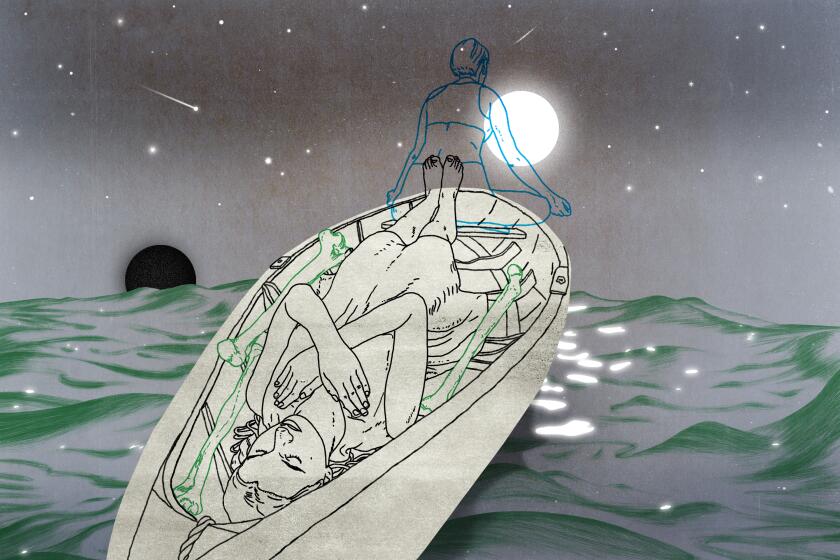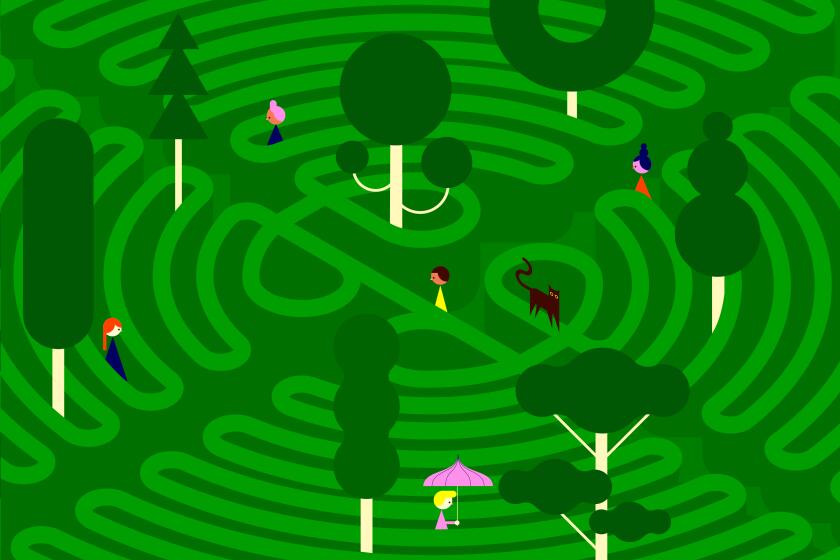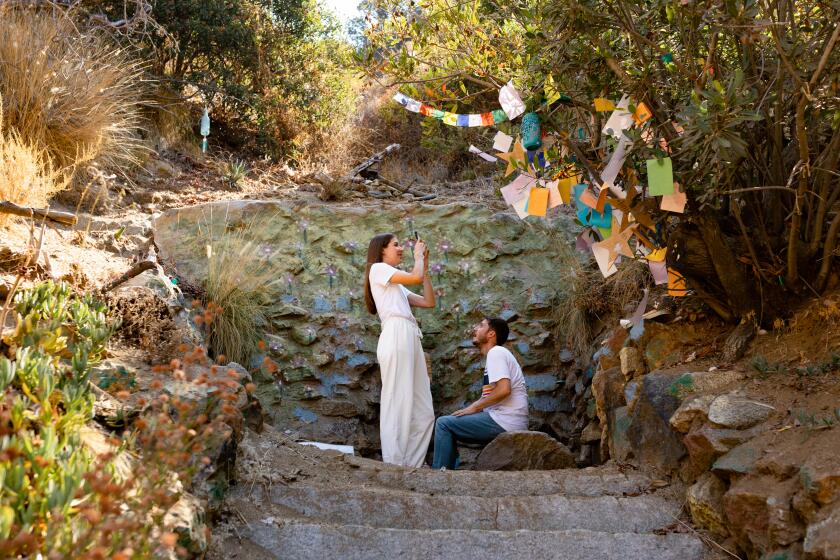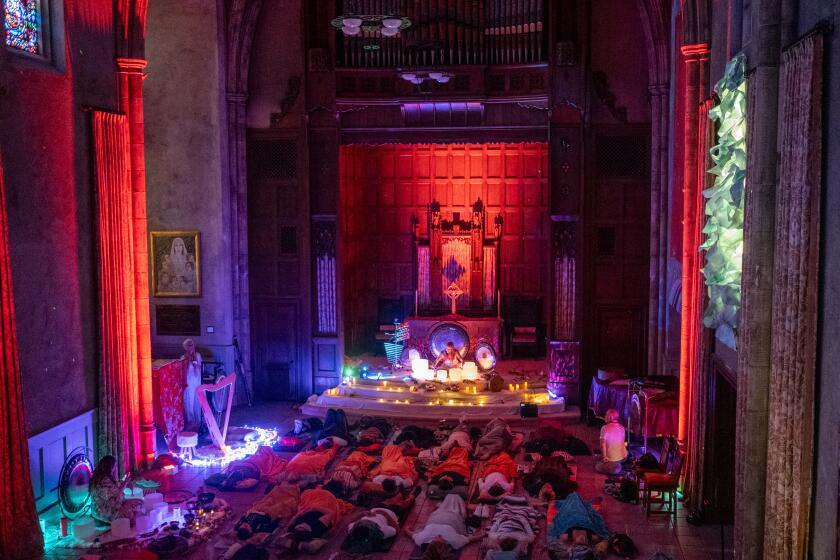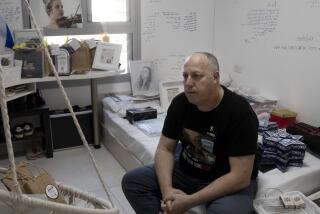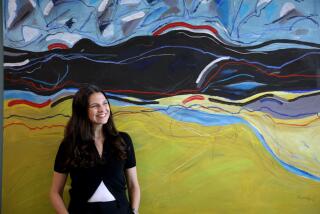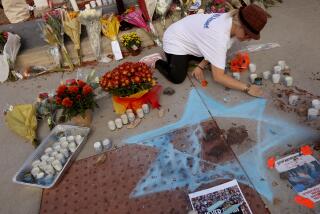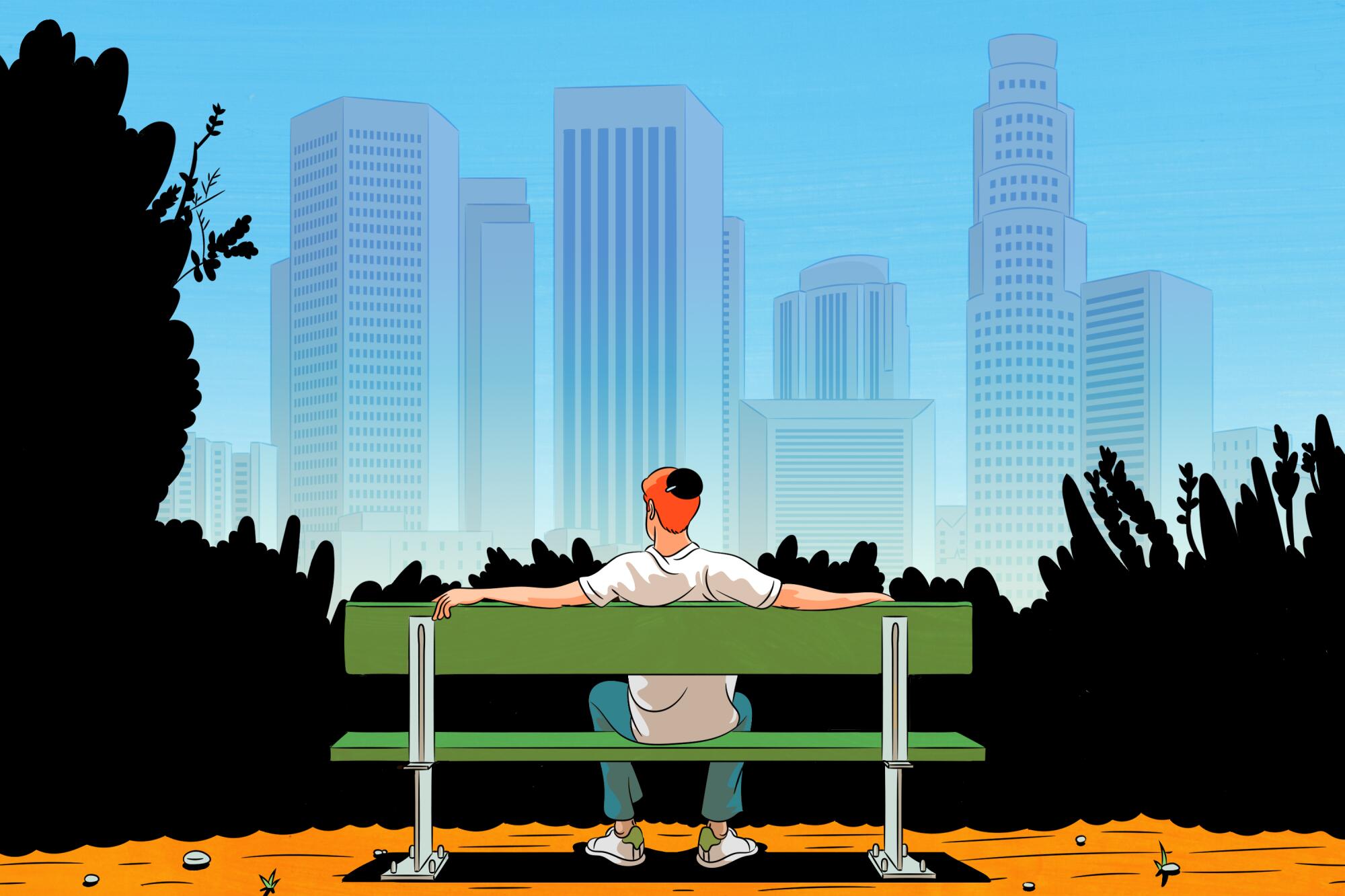
Yom Kippur is a complicated day for Miriam Bar-Zemer.
The Jewish holiday, which begins this year on the evening of Sept. 24, is considered the holiest day of the year — a time of deep introspection, fasting and repentance, which Jews have traditionally honored by spending the day in synagogue in a collective act of prayer, meditation and atonement.
But for Bar-Zemer, a 29-year-old graduate student who was born in Israel and grew up fairly secular in Los Angeles, deciding what to do on that day is an annual challenge. Her family didn’t belong to a synagogue for most of her childhood, and now as an adult it’s not a space that she finds conducive to self-reflection. Her father fasts, and some years she does too, but she feels like fasting in isolation misses the point. At the same time, eating normally doesn’t seem right either.
“I feel like it being the most important holiday, I’m obligated to recognize it, but then I struggle to meld the tradition with my own interpretation of what it means to feel redemption,” she said. “It’s a confusing day.”
She’s not alone.
Of the more than 564,000 people who identify as Jewish in L.A., roughly half said they intended to attend Yom Kippur services at a synagogue, according to a 2021 study by the Jewish Federation of Greater Los Angeles. While some of the remaining half treat Yom Kippur as just another day, others like Bar-Zemer feel a need to do something to honor the holiday, even if they aren’t sure what an authentic recognition of this time looks like. Others have come up with their own ways to make meaning.
A death meditation may sound morbid, but often it’s a celebration of life. At a Pasadena shop, you can experience a moving death meditation for yourself.
Even for many non-religious Jews, Yom Kippur addresses a fundamental need, said Rabbi Tarlan Rabizadeh, vice president for Jewish engagement at American Jewish University.
“We’ve got this one day to really wrestle and go deep,” she said. “It’s like it’s in our DNA.”
There are some people (mostly rabbis) who will tell you that Yom Kippur is their favorite holiday of the year, but for many Jewish people it’s a challenging day. In addition to the 25-hour fast — no food or water from sundown to the next day’s sunset — traditional services last for hours, involve more standing than usual, and are repetitive by design. You’re also supposed to spend the day taking an honest and unflinching look at yourself and your actions over the past year, acknowledging the ways in which you hurt others, hurt yourself, did not live up to your ideals or otherwise missed the mark.
“We find lots of ways to hide from our brokenness during the year,” said Rabbi Joel Nickerson of Wilshire Boulevard Temple. “This is the one day to focus on your brokenness, and you’re supposed to do it in the presence of other people. It’s a double layer of vulnerability.”
Despite all this painful soul-searching, most rabbis will tell you that Yom Kippur is a hopeful holiday, designed to help individuals examine, reckon with and take action to shed their guilt and shame.
But it doesn’t always feel that way.
“A lot of people see it as a day they are supposed to not eat and sit in services that are boring,” Nickerson said. “That’s on us as religious leaders to make the services more relevant and meaningful to people’s lives.”
To address this disconnect, many synagogues and Jewish communities have added alternative programs to their offerings. Nefesh, a Jewish community on the east side of L.A., hosts an annual Yom Kippur Urban Retreat that includes a sound bath and a movement workshop that embodies the themes of the days. The Silverlake Independent JCC is planning a walk-in live music experience on the eve of Yom Kippur with rotating musicians, poetry, art projections and smoke machines. And at Wilshire Boulevard Temple, this year’s Yom Kippur offerings will include a documentary screening, a service project, a lecture on the political situation in Israel and an art project.
In another departure from tradition, Nickerson plans to lead a “paddleboard and prayer” service on Sunday to celebrate Rosh Hashana, the Jewish new year that begins 10 days before Yom Kippur.
“We meet in Malibu, go into the ocean and circle up and do a service out there,” he said. “You can’t just rely on people showing up for the traditional experiences.”
Find yourself at these Los Angeles-area labyrinths when you’re feeling overwhelmed — or when you just want a calming, off-the-beaten path experience.
Traditional services, which can cost hundreds of dollars to attend for non-synagogue members, don’t work for Carola Kaplan, a retired English professor who now works as a psychoanalyst and who declined to give her age. She grew up in a non-observant household and became connected to Judaism as an adult. She finds studying Jewish religious texts spiritually stimulating but spending the day at temple less so. “I don’t really understand Hebrew, and just saying prayers vaguely is not that helpful or useful to me,” she said.
Kaplan has fasted on Yom Kippur in the past but stopped years ago after she sat next to a young undergraduate student at services who grew faint from not eating.
“I took him home with me and made lunch for both of us,” she said. “It felt more important to feed him than to fast, and that was my last experience with fasting.”
Now Kaplan spends Yom Kippur and the days before it (known in the Jewish tradition as the Yamim Noraim or the Days of Awe) making a deliberate effort to reach out to friends and family with whom she has not been in regular contact. “Especially at that time, I think about the people who are important to me,” she said. “And at this point in life, getting on as one is, it becomes more important to talk to people because you don’t know how they are doing.”
For Dani Mahrer, 36, creating space for self-reflection on Yom Kippur means climbing a mountain on her own. Last year, the South Pasadena resident took the day of Yom Kippur off work and drove up Angeles Crest Highway for an eight-mile hike up Mt. Baden-Powell.
“I didn’t want to fast and I didn’t want to go to synagogue, but I wanted to do something meaningful,” she said. “I find I can be the most self-reflective and focused and not distracted when I’m out in nature and where I don’t have cell service.”
Feeling sad or hopeless ? These 12 beautiful places in Los Angeles will lift your spirits.
Joe Goldman, 34, who lives in Brentwood and identifies as “proudly Jewish” and atheist, describes the holiday as having a weight around it that is felt by both religious and nonreligious Jews.
“Even if you don’t think about your Jewish identity for 364 days a year, chances are that at a minimum, if you forgot it was Yom Kippur and then you find out, you are probably going to feel badly, or guilty,” he said.
Over the past two years he has honored the holiday by speaking at synagogues about his work as community engagement director for the Western region of HIAS, a Jewish nonprofit that resettles refugees.
“My office is officially closed on Yom Kippur, but if there is an opportunity to bring more people into the work I’m doing I want to take it,” he said. “I find that experience really meaningful.”
He doesn’t fast — “I don’t find it helps me be a better, more introspective, healthy person” — but he always attends his family’s large meal to break the fast at the end of the day.
“There’s something really joyous about it,” he said. “It’s like a family reunion.”
Cantor Jonathan Friedmann, the community leader of Adat Chavarim, a small humanistic community that emphasizes Jewish culture rather than the theistic religion, said the group holds one service to cover both Rosh Hashanah and Yom Kippur.
“We take the high notes from both of the holidays, filter it through a humanistic lens, and give it to the people in about an hour,” he said. “It’s rather informal and also meaningful.”
The community deliberately leaves the day of Yom Kippur open to allow congregants to choose how to honor it in a way that feels authentic to each individual.
Some feel like they already acknowledged the High Holidays and treat Yom Kippur as just another day, while others might join family for more conventional services. Still others, like Friedmann, who also works as a dean at the Academy for Jewish Religion, California, take the day off from work and commemorate the holiday in the same way the average American might celebrate Memorial Day or July Fourth — as a day to pause, reflect and be grateful for the break from daily life.
“For Jews who are keyed into their culture, I think Yom Kippur and Rosh Hashanah play that role,” he said. “These are important days that you shouldn’t treat like other days, but that doesn’t mean you have to go to synagogue.”
Sound baths are everywhere in Los Angeles, even in churches. Here’s what it’s like to experience the singing bowls and gongs in grand, acoustic settings.
Rabbi Noah Farkas, president and CEO of the Jewish Federation of Greater Los Angeles, said he’s not surprised that roughly half of the Jewish adults in Los Angeles choose to spend Yom Kippur outside of synagogue. After all, the city is filled with creative thinkers and abundant, awe-inspiring beauty.
“Some don’t care at all, but the other 49% are up in the mountains, they are riding bikes on the beach, they are meditating on the waves or meeting with friends to come up with creative rituals on how to let go of what is holding them down,” he said. “All those things are exploding all at once.”
Farkas said the traditional Yom Kippur practices of not eating, sitting in synagogue, covering one’s head with the prayer shawl and abstaining from the “delights of the world” help him get into a space of self-reflection, but he understands that doesn’t work for everyone.
“If that’s not the right technology for you, then go find the thing that gets you into that place,” he said. “And if you’re a creative person, make the thing.”
As for Bar-Zemer. she still doesn’t know how she’ll spend Yom Kippur this year, but she appreciates that there are a variety of options available to her.
“The beauty of Judaism to me is there is so much diversity,” she said.
More to Read
Sign up for our L.A. Times Plants newsletter
At the start of each month, get a roundup of upcoming plant-related activities and events in Southern California, along with links to tips and articles you may have missed.
You may occasionally receive promotional content from the Los Angeles Times.
